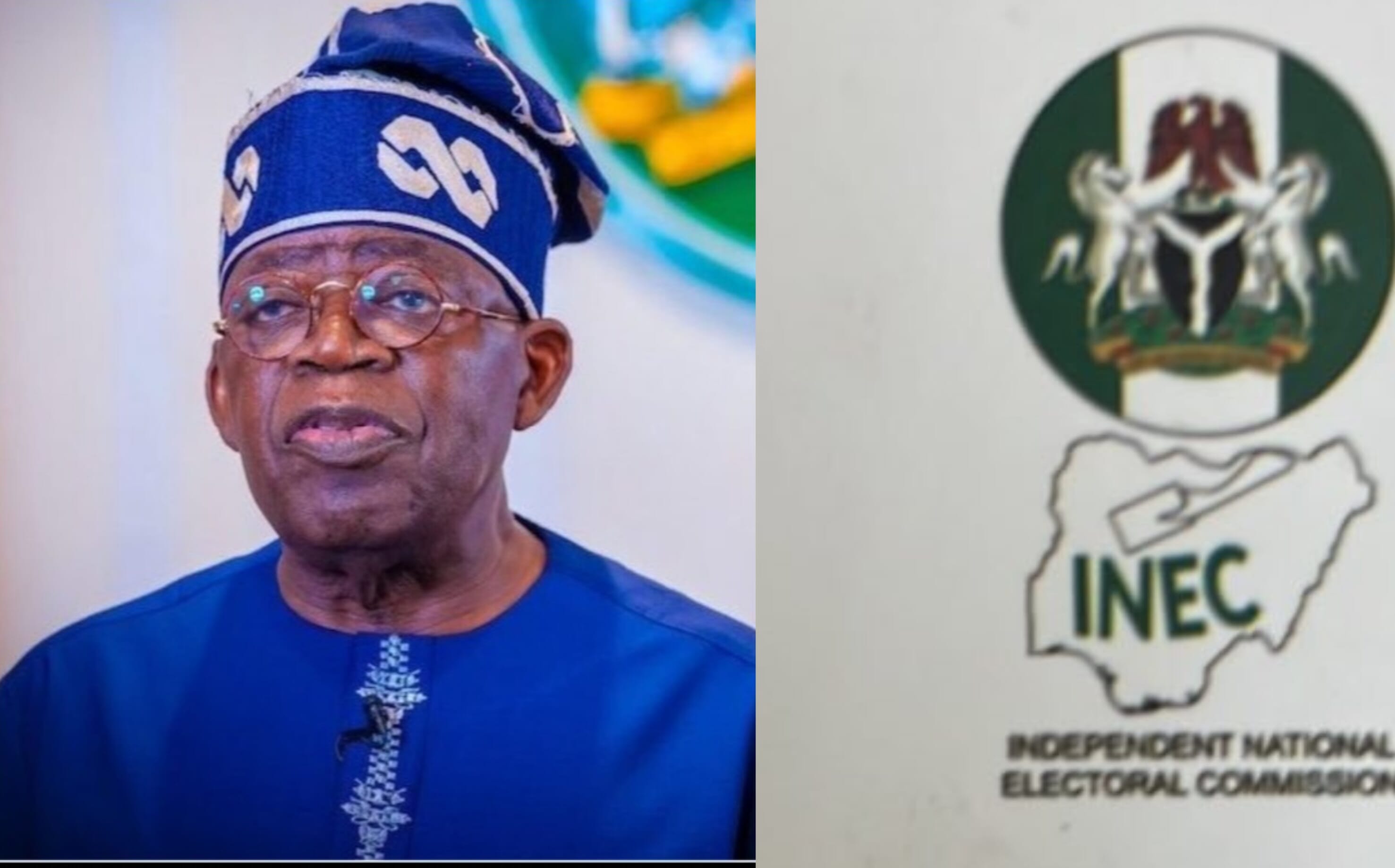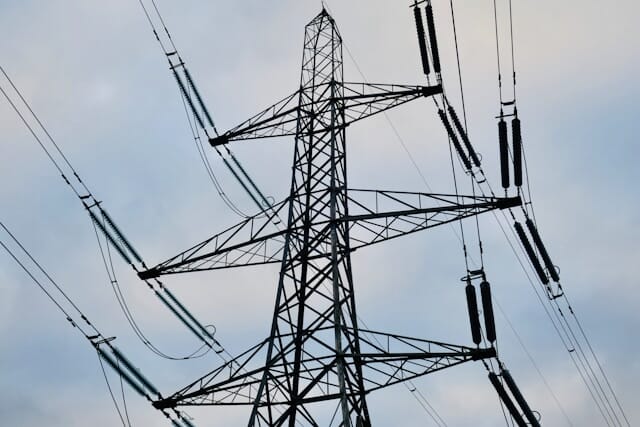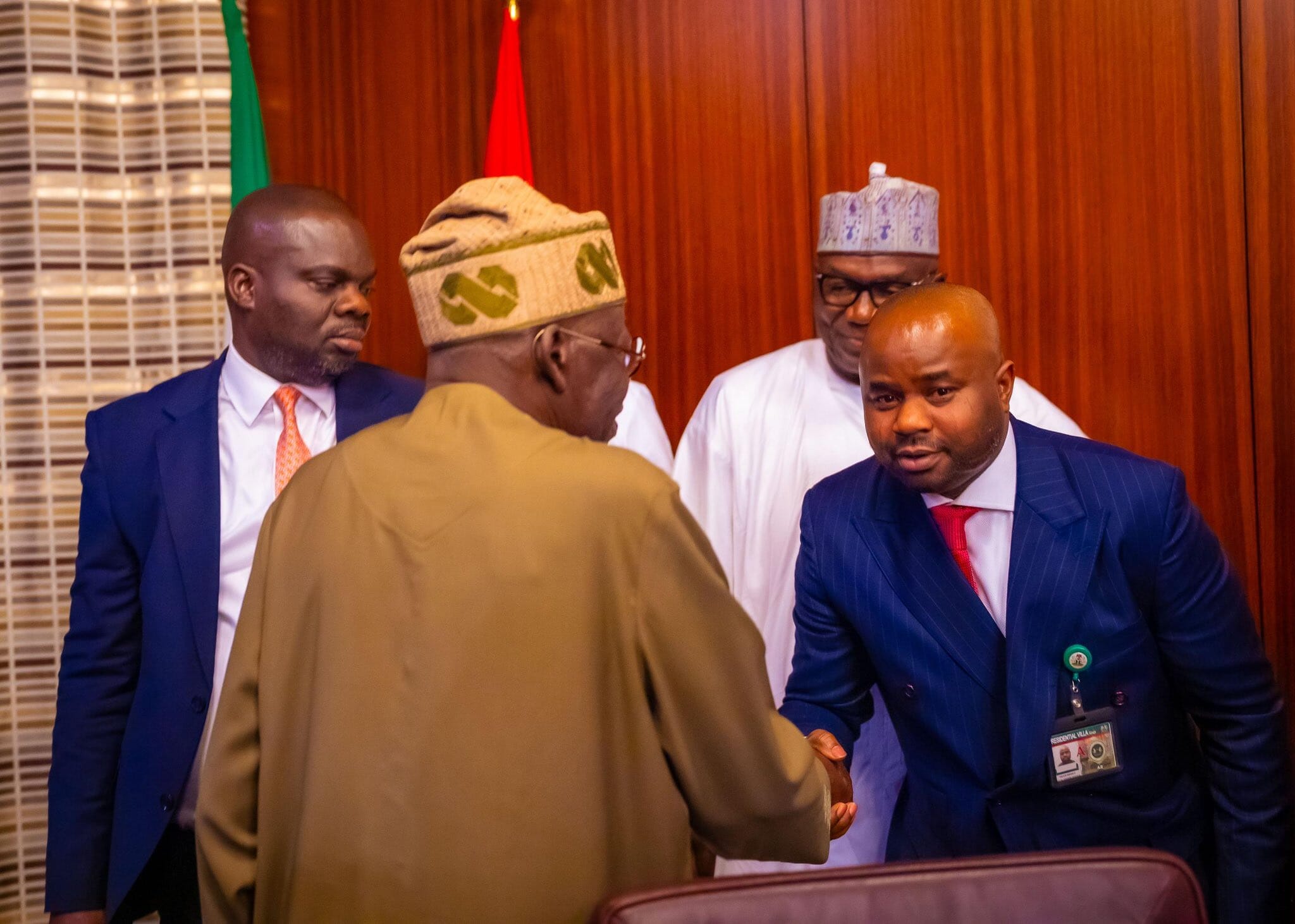As Nigeria approaches the 2027 general elections, the spotlight falls on the Independent National Electoral Commission (INEC), the body tasked with upholding the integrity of the democratic process. With current Chairman Professor Mahmood Yakubu's tenure set to expire in October 2025, questions swirl around who will succeed him. Central to this debate is whether President Bola Ahmed Tinubu possesses the constitutional authority to appoint the new INEC Chairman. This issue strikes at the heart of Nigeria's democracy: Can the executive branch, which INEC oversees elections for, truly remain impartial when it holds the power of appointment?
In this comprehensive analysis, we'll dissect the relevant provisions of the 1999 Constitution (as amended), trace historical precedents, examine expert opinions, and address the brewing controversies. Drawing from legal texts, recent political discourse, and calls for reform, this post clarifies Tinubu's rights, the checks and balances involved, and the broader implications for electoral credibility. Whether you're a voter, policymaker, or observer, understanding this power dynamic is crucial for safeguarding Nigeria's fragile democracy.
Understanding INEC's Role in Nigerian Democracy
The Independent National Electoral Commission (INEC) is not just an administrative body; it's the guardian of Nigeria's electoral sovereignty. Established under Section 153(1) of the 1999 Constitution, INEC's primary mandate, as outlined in Section 15 of the Third Schedule, includes:
- Conducting elections to federal, state, and Area Council offices (except local governments, handled by State Independent Electoral Commissions).
- Compiling and maintaining the national voter register.
- Conducting referendums as required by law.
These functions are pivotal for ensuring free, fair, and credible elections a cornerstone of the Fourth Republic since 1999. INEC has overseen seven general elections (1999, 2003, 2007, 2011, 2015, 2019, and 2023), each marked by varying degrees of success and controversy. The 2023 polls, under Yakubu, faced accusations of irregularities, voter suppression, and technical failures, eroding public trust. A 2024 survey by youth-led groups highlighted disillusionment among young voters, with many citing INEC's failure to transmit results in real-time as a key grievance.
For INEC to function independently, its leadership must be insulated from political interference. Yet, the appointment process raises eyebrows: Who appoints the Chairman, and does this compromise neutrality? This leads us directly to the constitutional framework.
The Constitutional Framework: Tinubu's Appointment Powers
At the core of the debate is Section 154(1) of the 1999 Constitution, which explicitly grants the President the power to appoint the Chairman and members of certain federal bodies, including INEC. The provision states: "Except in the case of ex officio members or where other provisions are made in this Constitution, the Chairman and members of any of the bodies so established shall... be appointed by the President and the appointment shall be subject to confirmation by the Senate."
This is reinforced by Section 153(1), which lists INEC among the independent executive bodies. Further, Section 154(3) mandates that "In exercising his powers to appoint a person as Chairman or member of the Independent National Electoral Commission... the President shall consult the Council of State."
In plain terms: Yes, President Tinubu has the constitutional right to appoint the new INEC Chairman. The process is not unilateral, it requires consultation with the Council of State (a advisory body of former leaders) and Senate confirmation by a simple majority. Appointments are for a non-renewable five-year term, as per INEC guidelines, ensuring turnover but not perpetual loyalty to the appointer.
This framework echoes earlier constitutions, like the 1979 version, which also vested appointment powers in the executive to centralize electoral management. However, the "independent" label in INEC's name belies the reality: The executive's role creates a perceived conflict of interest, as the same President whose election INEC certifies can shape its leadership.
Recent actions by Tinubu underscore this authority. In May 2025, he swore in two new INEC Commissioners, demonstrating the routine exercise of these powers. Similarly, in 2024, he appointed ten Resident Electoral Commissioners (RECs) under Section 154(1) and the Electoral Act 2022, subject to Senate approval. These moves affirm that the constitutional mechanism remains operational and unchallenged in court.
Historical Precedents: From Past Presidents to Tinubu
Nigeria's electoral history provides context for Tinubu's position. Since INEC's inception in 1999, every Chairman has been appointed by the sitting President:
- 1999: Ephraim Nwanyanwu - Appointed by President Olusegun Obasanjo (PDP) amid the transition from military rule.
- 2000: Abel Guobadia – Continued under Obasanjo, overseeing the 2003 elections marred by violence.
- 2005: Attahiru Jega – Appointed by President Umaru Yar'Adua (PDP) in a reformist move post-2007 polls' flaws. Jega's tenure (2010-2015) is lauded for the credible 2011 and 2015 elections, including the first civilian-to-civilian power transfer.
- 2015: Mahmood Yakubu – Appointed by President Muhammadu Buhari (APC), who consulted the Council of State. Yakubu served two terms (2015-2025), conducting the 2019 and 2023 elections, the latter criticized for logistical failures and alleged bias toward the APC.
Each appointment followed the Section 154 protocol, with Senate confirmations. Buhari's 2015 pick of Yakubu, a North-Central academic, was seen as neutral, but his extension into 2023 fueled rigging claims. Tinubu, inheriting this system in 2023, has already flexed his muscles by appointing RECs and Commissioners, signaling continuity.
Critics point to patterns: Appointments often favor the President's region or allies, undermining federal character principles under Section 14(3). For instance, Jega (North) succeeded Guobadia (South-South), and Yakubu (North) followed. Calls now urge Tinubu to appoint from the South-South for balance, as suggested by activist Monday Ubani in July 2025.
These precedents confirm Tinubu's legal right but highlight how executive dominance has perpetuated distrust.
Controversies and Criticisms: A Threat to 2027 Elections?
While constitutionally sound, Tinubu's appointment power is lightning rod for controversy, especially with 2027 looming. Opposition voices argue it invites manipulation, echoing the 2023 election's scars. In March 2025, Vanguard reported plots to replace Yakubu with a "yes-man," potentially compromising polls. By September 2025, alarms rang louder: NNPP chieftain Buba Galadima warned on Arise TV that Tinubu's rumored pick, a "notorious retired judge" could spark civil war, labeling it a reward for APC loyalty.
The Coalition ofcechoed this in September 2025, vowing resistance to a Southwest loyalist, accusing the administration of engineering opposition crises to rig 2027. Prof. Mike Ozekhome (SAN) urged Tinubu against appointing, arguing INEC's loyalty inevitably tilts to the executive, per a September 18, 2025, Independent Nigeria interview. Monday Ubani (SAN) conceded the right exists but called for amendments to foster true independence.
Youth groups like the Youth Electoral Reform Project (YERP-Naija) demand barring Tinubu from appointments altogether, proposing an independent panel in a June 2025 petition. Activists, in a June Guardian NG report, rejected "unilateral" picks, citing Section 15's mandate for credible elections as contradictory to executive control.
Pro-democracy outfit African Democratic Youth Congress (ADYC) in August 2025 implored Tinubu for a "credible" successor with integrity, prioritizing national interest over partisanship. These voices represent a distribution of stakeholders: opposition (NNPP, CUPP), civil society (YERP, ADYC), and legal experts (Ozekhome, Ubani), all biased toward reform but substantiated by 2023's fallout.
Tinubu's administration counters by affirming commitment to INEC's independence. In a 2025 State House address at the INEC annex groundbreaking, he pledged equipping the body for "excellence and independence," while Yakubu denied sack rumors in May 2025, forwarding 142 reform recommendations to the National Assembly.
The debate underscores a politically incorrect truth: Presidential appointments, while legal, risk entrenching authoritarianism in a multi-ethnic federation like Nigeria, where 2023 turnout plummeted to 27% due to apathy.
Calls for Reform: Breaking the Cycle of Doubt
To resolve this, stakeholders advocate constitutional tweaks. Ozekhome proposes shifting appointments to the Council of State or a neutral panel including the NBA, NANS, and elder statesmen one per geo-political zone for vetting and nomination, with Presidential selection from a shortlist. This aligns with 2017 Punch NG debates and 2025 activist memoranda.
YERP-Naija's June 2025 push includes public hearings in July, targeting Section 154 amendments. Former INEC Chair Jega, in archived views, supported insulating appointments from the executive. Implementing these could boost turnout, civic engagement, and international confidence, averting sanctions warned by CUPP.
Without reform, 2027 risks deeper division. Tinubu, who rose opposing 1993's annulment, could champion change for legitimacy.
Conclusion: Rights, Responsibilities, and the Road Ahead
President Tinubu unequivocally holds the constitutional right under Sections 153 and 154 to appoint the new INEC Chairman, tempered by consultation and confirmation. Historical precedents affirm this, but controversies from rigging fears to civil war warnings expose systemic flaws. For 2027 to restore faith, Tinubu must select transparently, perhaps from the South-South, while backing reforms.
Nigeria's democracy demands more than legal compliance; it craves trust. As Yakubu's exit nears, the nation watches: Will Tinubu wield this power for unity or division? The answer shapes not just elections, but the federation's future.
Read More
- How the FG’s Introduction of Chinese Mandarin into Secondary Schools is Shaping a Generation of Global Nigerians
- Notorious IPOB/ESN Commander ‘Gentle De Yahoo’ Captured in Imo
- Anti-EndSARS Critic Buhun Barkonun Dies in Abuja Hotel During Sex Marathon
- FG Commences ATM Card Distribution for N75,000 Cash Transfer, Benefiting Millions of Nigerians




